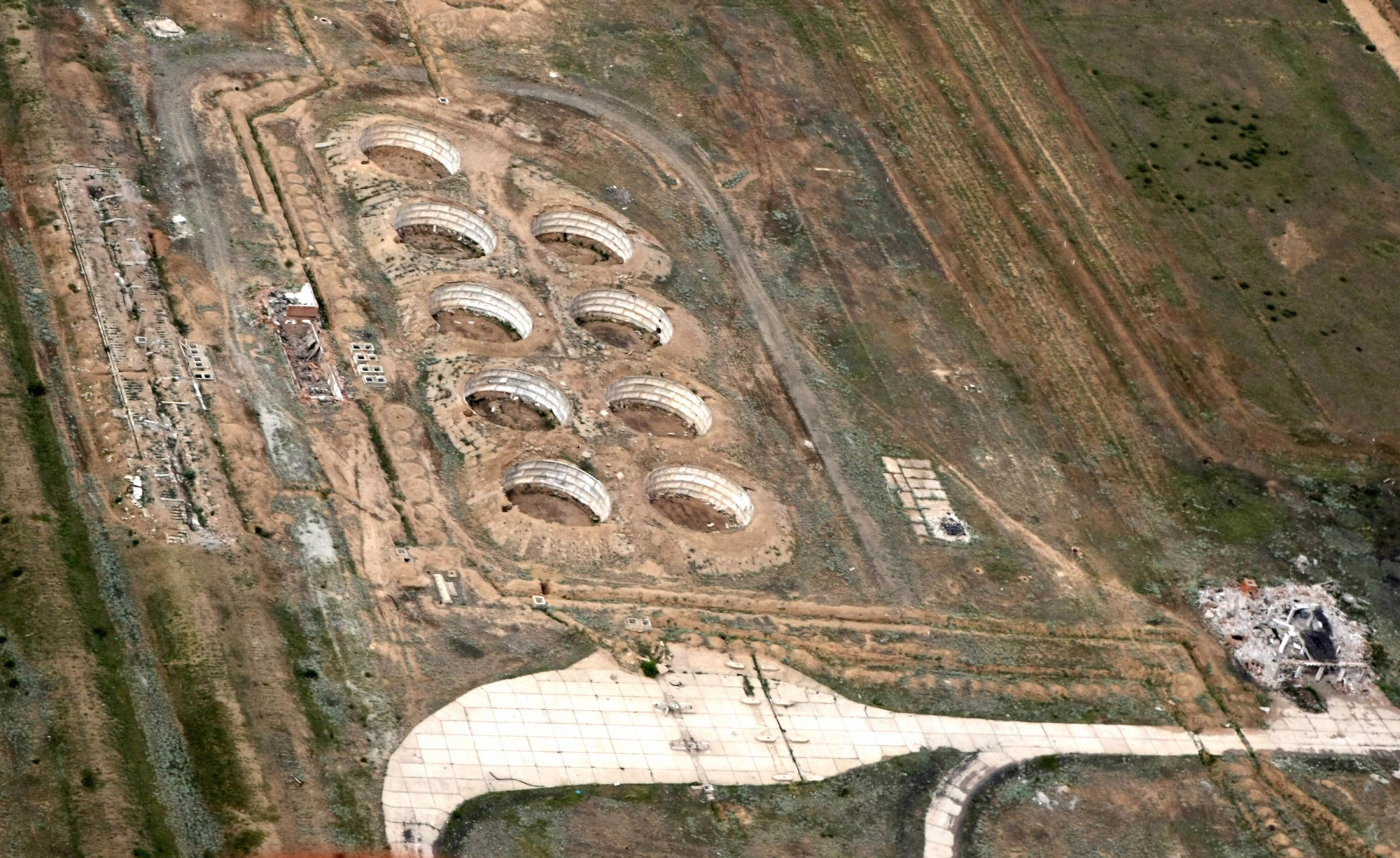
The Soviet Union detonated hundreds of nuclear devices over a period of 40 years at the Semipalatinsk Test Site in Kazakhstan—but all of that stopped when the test site closed 25 years ago, on Aug. 29, 1991.
Fallout from the mushroom clouds above ground and explosions below ground did severe damage over time on the surrounding populations, especially in the town of Semipalatinsk (now Semey) almost 100 mi. east of the site. Radiation levels are still as much as ten times higher in the soil and water near the town, and babies were born with deformities during and after the period of testing. Cancer leveled the population so that, according to a 2016 report, more than half of the town does not live to 60.
Now, the United Nations recognizes the International Day Against Nuclear Tests every year on that date to commemorate the decision by Kazakhstan’s President Nursultan Nazarbayev to shut the site down.
“Every effort should be made to end nuclear tests in order to avert devastating and harmful effects on the lives and health of people and the environment,” states U.N. Resolution 64/35, which the General Assembly accepted in 2009 to establish the Day Against Nuclear Tests.
Get your history fix in one place: sign up for the weekly TIME History newsletter
Even in 1961, TIME printed an explainer on nuclear damage that explained that fallout “can cause cancer, leukemia, sterility and mutations in future generations.” But underground testing continued at Semipalatinsk until 1989. Eventually an anti-nuclear movement called Nevada Semipalatinsk grew, bringing thousands to it protests against the nuclear site in 1989.
And Semipalatinsk was more than just one site: its closing in 1991 was symbolic, amidst the crumbling of the Soviet Union. When it was announced that the test site would close, TIME noted that it was a good sign for a world concerned about what would happen to the nuclear devices and site in formerly-Soviet regions:
Most experts, though, believe the threat of atomic war was minimal during the coup and will probably remain so even if the Union dissolves. One reason is that virtually all the U.S.S.R.’s strategic nuclear arms—the missile- and bomber-borne kinds that threaten other nations—are in just four republics: Russia, Ukraine, Belorussia and Kazakhstan. Of the four, Russia holds 80% or more of the strategic nukes…
Two other republics with strategic nukes have gone still further toward yielding control. Both Ukraine and Belorussia have proclaimed themselves nuclear-free zones, and Kazakhstan’s President Nursultan Nazarbayev decreed the closing of the underground nuclear testing center at Semipalatinsk, though he has not yet agreed to give up the weapons.
The International Day Against Nuclear Tests serves as a reminder of the 1996 Comprehensive Nuclear Test Ban Treaty that the U.N. adopted, but has not yet entered into force. The treaty would ban all nuclear testing or explosions in any setting, yet eight states in the world have not signed or ratified it yet: China, Egypt, India, Iran, Israel, North Korea, Pakistan and the United States.
Read more from the TIME vault: Nuclear Time Bombs
More Must-Reads From TIME
- The 100 Most Influential People of 2024
- Coco Gauff Is Playing for Herself Now
- Scenes From Pro-Palestinian Encampments Across U.S. Universities
- 6 Compliments That Land Every Time
- If You're Dating Right Now , You're Brave: Column
- The AI That Could Heal a Divided Internet
- Fallout Is a Brilliant Model for the Future of Video Game Adaptations
- Want Weekly Recs on What to Watch, Read, and More? Sign Up for Worth Your Time
Write to Julia Zorthian at julia.zorthian@time.com